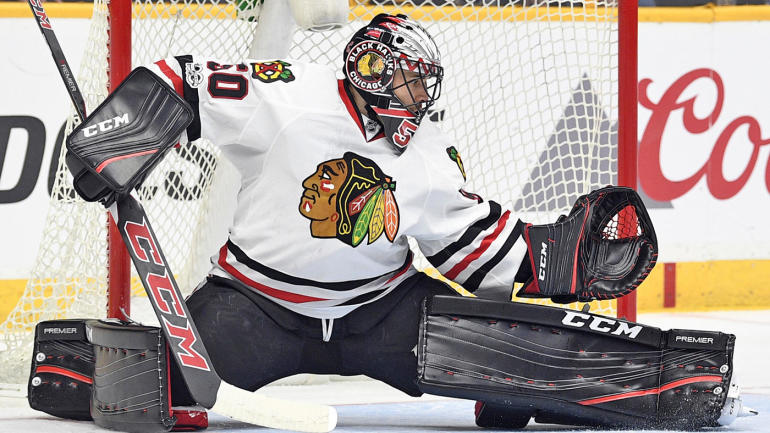
The Chicago Blackhawks announced on Tuesday that they would keep their name and logo, and would commit to increasing awareness of Native American culture and the legacy of the famous Sauk leader who the team is named after, Black Hawk. This decision comes on the heels of Washington's football team and the Cleveland Indians reconsidering their respective Native American-themed logos, mascots and names.
The franchise's statement follows the rhetoric that fans and executives of teams with Native American imagery have often used in these sorts of discussions. It cites the connection to a real-life Native American leader, and explains how the team actually shows reverence towards Native people in honoring the legacy of Black Hawk. Washington owner Dan Snyder, for example, similarly argued that his team's name was selected to honor Native Americans, despite many pointing out that the name is considered a racial slur.
At the same time, the team acknowledges that there is "a fine line between respect and disrespect" and gives kudos to the teams rethinking their names. The Blackhawks are "committed to raising the bar even higher to expand awareness of Black Hawk and the important contributions of all Native American people."
For the most part, the Blackhawks have escaped mainstream criticism of their name and logo -- whether it's due to hockey's relatively limited cultural impact as a sport in the U.S., or other teams having significantly more offensive imagery is up for debate. But there has been scrutiny of it in the past. Suzan Harjo of the Morning Star Institute, a Washington-based advocacy group, said having a sports team named after a people "lacks dignity." Former Deputy Director of the National Congress of American Indians said Blackhawk is a name that should be retired. John Blackhawk, chairman of the Winnebago Tribe of Nebraska and namesake of the 19th century Sauk leader, noted that the team's contributions to the American Indian Center of Chicago didn't make up for a logo he believed to be inappropriate. All of these comments were given to the Chicago Tribune seven years ago.
Of course, there were disparities even among the Native community. Joseph Podlasek, a citizen of the LCO Ojibwe Tribe, commended the team's contributions to the center back in 2013, and even attended Game 1 of the Stanley Cup Final that season.
"I am OK with both (the name and Indian head logo) as long as the educational process continues," Blunk told the Chicago Tribune.
In 2015, the owner of the Winnipeg Jets banned fake Native headdresses from games after a visiting Blackhawks fan donned one the season prior. The decision was made after owner Mark Chipman met with First Nations leaders.
The team's full statement can be read below in full, per the Chicago Sun-Times:
The Chicago Blackhawks name and logo symbolizes an important and historic person, Black Hawk of Illinois' Sac & Fox Nation, whose leadership and life has inspired generations of Native Americans, veterans and the public.
We celebrate Black Hawk's legacy by offering ongoing reverent examples of Native American culture, traditions and contributions, providing a platform for genuine dialogue with local and national Native American groups. As the team's popularity grew over the past decade, so did that platform and our work with these important organizations."
We recognize there is a fine line between respect and disrespect, and we commend other teams for their willingness to engage in that conversation.
Moving forward, we are committed to raising the bar even higher to expand awareness of Black Hawk and the important contributions of all Native American people.
We will continue to serve as stewards of our name and identity, and will do so with a commitment to evolve. Our endeavors in this area have been sincere and multi-faceted, and the path forward will draw on that experience to grow as an organization and expand our efforts.

















